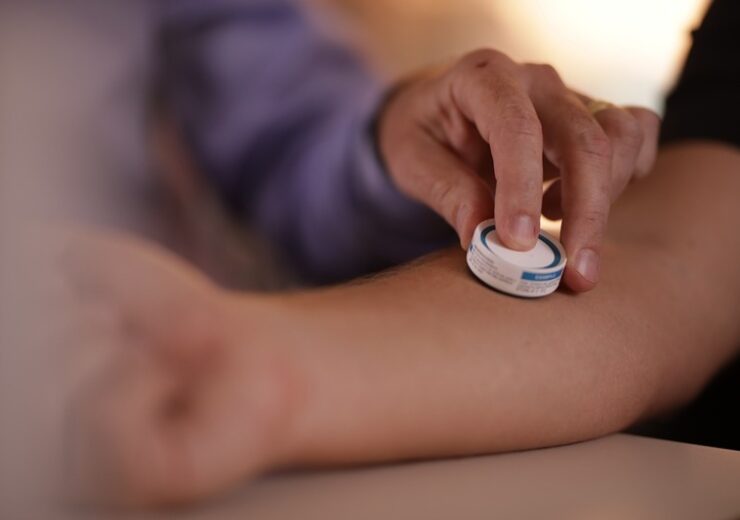HD-MAP is a needle-free vaccine patch technology that improves vaccination by producing enhanced patient-doses from limited quantities of vaccine

Vaxxas HD-MAP application. (Credit: Business Wire.)
Vaxxas, a clinical-stage biotechnology company, has secured $22m funding from the US government to support the deployment of its HD-MAP technology platform for vaccine delivery during the pandemic.
The US government funding is offered through the Biomedical Advanced Research and Development Authority (BARDA), part of the Assistant Secretary for Preparedness and Response (ASPR)’s office at the US Department of Health and Human Services.
The funding is aimed at advancing clinical demonstration of Vaxxas’ advanced HD-MAP patch for pandemic influenza.
Under the terms of the $22m award from BARDA, Vaxxas is expected to conduct a Phase 1 clinical study of its high density micro-array patch (HD-MAP) to deliver the pandemic influenza vaccine.
In the study, the company will use both unadjuvanted and adjuvanted vaccine formulations, in more than 400 study participants.
The total cost of the project is estimated to be $24.1m and the remaining amount of $2.1m will be met by Vaxxas.
Vaxxas chief executive officer David L Hoey said: “We are excited to partner with BARDA to rapidly deploy Vaxxas’ HD-MAP technology, which holds the promise of significantly improving pandemic response with needle-free vaccine delivery that is more effective and readily accepted.
“Having validated our HD-MAP technology in clinical studies at commercial scale, we stand ready to be among the leading innovators who can solve critical challenges to global pandemic health crises, going beyond and enhancing the capabilities enabled by promising vaccines.”
HD-MAP platform facilitates vaccine delivery with reduced dose requirements
Vaxxas’ HD-MAP is a 9x9mm array of thousands of very short (around 250µm) projections, which cannot be seen through naked eye, and coated with vaccine.
HD-MAP patch delivers vaccine to more number of immune cells, when it is applied to the skin. Unlike needles or syringes, the HD-MAP patch is easy to apply, said the company.
Vaxxas said that the vaccine delivered using its HD-MAP technology demonstrated stability for 12 months, even at high temperatures ranging around 40ºC.
The company’s HD-MAP platform has demonstrated the capability to facilitate vaccine delivery with reduced dose requirements, enabling rapid manufacturing of more doses from limited vaccine.
Also, the HD-MAP patch is said to induce onset of immune responses in less time with enhanced antibody responses, leading to more rapid and durable disease protection.
Furthermore, the vaccines can be rapidly distributed using population-scale logistics, as the technology prevents the need for refrigerating the vaccines. The technology is currently being evaluated for self-administration use.
